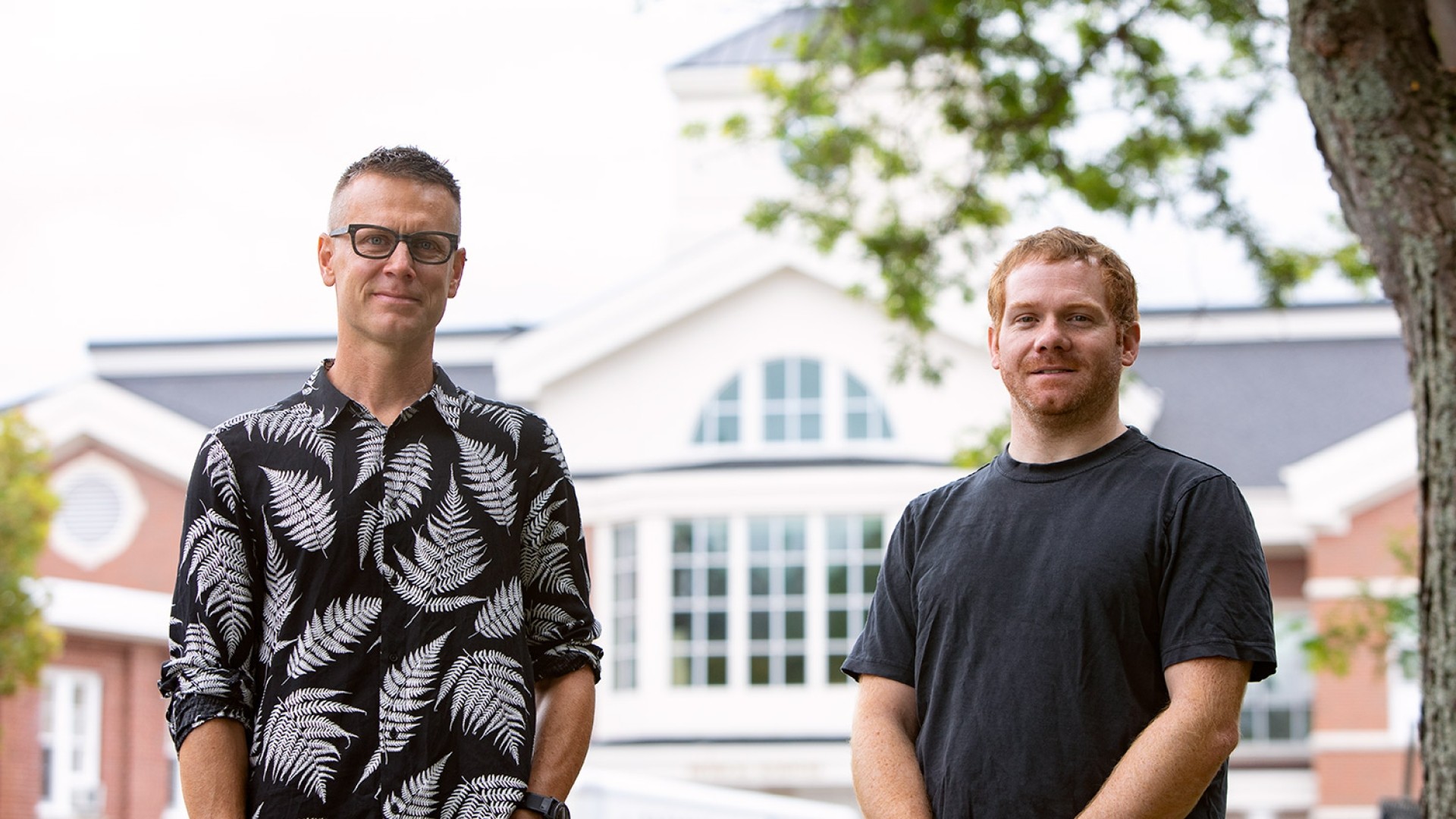
Two projects carrying out important climate change research at StFX will be funded in part by the Government of Canada. On Nov. 23, two StFX faculty members, Dr. Andrew MacDougall and Dr. Dave Risk, were awarded over $2 million in funding from the Climate Action and Awareness Fund.
Dr. MacDougall, Coordinator, Climate & Environment, has been awarded $1,557,149 and will lead a project, quantifying the climate benefit of nature-based solutions in Canada. StFX is the lead institution on this research in a partnership with three other universities (Simon Fraser University, University of Victoria, and Concordia.)
Dr. Risk, earth sciences professor and head of the Flux Lab, has received $475,500 in funding and will conduct research on COntinuous MEthane mapping in Western Canadian oil and gas Towns (COMET).
The Climate Action and Awareness Fund of up to $206 million was largely created using the $196.5 million fine paid by Volkswagen to the Environmental Damages Fund for circumventing Canada’s environmental protection rules – the largest environmental fine in Canadian history. The fund supports projects that will help reduce emissions across Canada and is strengthening Canada’s capacity to take climate action by empowering youth and communities and boosting climate change science and research. A total of $58 million will go toward projects that will strengthen Canada’s science capacity to identify, accelerate, and evaluate mitigation actions towards achieving net-zero greenhouse gas (GHG) emissions in Canada by 2050.
The awards speak to the quality and importance of the work that both Dr. MacDougall and Dr. Risk are doing, says David Bruce, Director, StFX Research Grants.
Dr. MacDougall will lead a research project focused on ‘Quantifying the climate benefit of nature-based solutions in Canada.’
Nature-based solutions to climate change seek to enhance the ability of natural ecosystems and agricultural systems to absorb carbon, while providing co-benefits for biodiversity and food production, Dr. MacDougall says.
However, large-scale alteration of these systems will also create physical and biogeochemical side effects, which may enhance or counteract the climate benefit of sequestering carbon.
“A simple example of such side effects is the darkening of land areas from planting forests, which causes absorption of more sunlight and local warming. So whether the net effect is global warming or cooling depends on the balance of these effects, and we need better climate models to estimate the balance,” he says.
“The goal of this project is to improve climate models so that they can better quantify the efficacy of nature-based solutions for climate change as part of climate action by taking into account the full climate effects of these solutions.”
To achieve this goal, this project will mobilize better understanding of biogeochemistry on land and increased computer power to develop higher fidelity soils, agriculture and terrestrial biosphere modules for climate models, and design metrics to quantify the efficacy of nature-based solutions, allowing for a comprehensive evaluation of the climate benefit of these solutions.
The project is key to ensuring that in a framework that balances residual greenhouse emissions with CO2 removals, “net-zero” CO2 emissions will effectively result in temperature stabilization, he says.
Dr. Dave Risk will lead research looking into “COntinuous MEthane mapping in Western Canadian oil and gas Towns (COMET).”
This project will help manage urban methane and assist Canada in achieving net-zero by 2050.
The project team consists of Dr. Risk’s research group, FluxLab, National Research Council, and Eosense Inc. They will equip three towns with new, Canadian-developed, cost-effective, mobile methane sensors.
“Sensors will be mounted on municipal vehicles to continuously collect measurements and map the area,” Dr. Risk says.
“We will analyze and compare our data against methane inventory estimates from all sources, like local airsheds and federal models, to understand impact and identify opportunities for reduction. This project will generate data and knowledge for policy makers and municipal governments and create market opportunities for valuable Canadian-developed sensors.”

